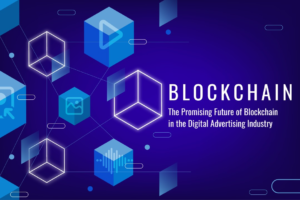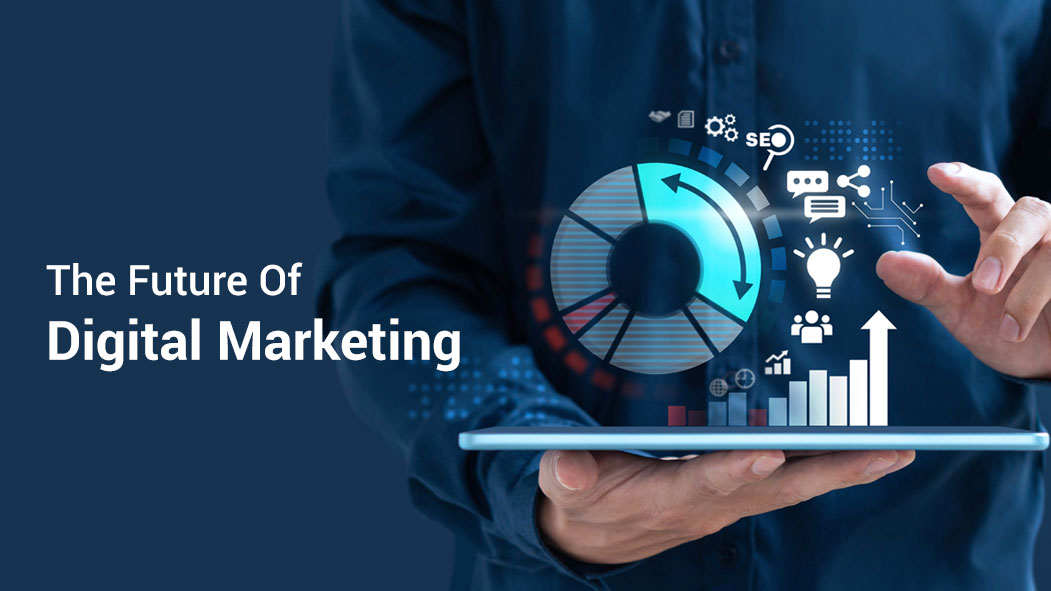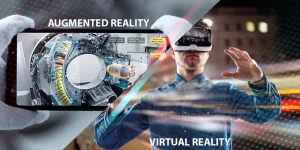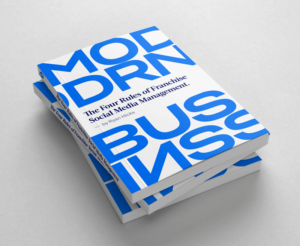As technology advances and consumer behaviors shift, the future of digital marketing promises to be even more dynamic and multifaceted. Here’s a look at some key trends and innovations shaping the future of digital marketing in 2025.
1. Voice Search and Conversational Marketing
Voice search is becoming increasingly popular with the rise of smart speakers and voice assistants like Amazon’s Alexa, Google Assistant, and Apple’s Siri. As more consumers use voice commands to search for information, digital marketers will need to optimize their content for voice search. This means focusing on natural language processing and conversational keywords. Additionally, conversational marketing—using chatbots and live chat to engage with customers in real-time—will become more prevalent, providing personalized experiences and immediate support. The future of digital marketing in 2025 will see these technologies evolve further, with AI and machine learning driving even more sophisticated and predictive interactions.
2. Augmented Reality (AR) and Virtual Reality (VR)
Augmented Reality (AR) and Virtual Reality (VR) are revolutionizing consumer-brand interactions by creating immersive and interactive experiences that blend the digital and physical worlds. AR allows users to overlay digital information onto the physical world, while VR creates immersive digital environments. Marketers are using AR to enhance product experiences, such as virtual try-ons for fashion and beauty products. VR is being used for brand storytelling and creating engaging, interactive experiences. As these technologies become more accessible, they will play a larger role in digital marketing strategies.
3. Data Privacy and Ethical Marketing
With increasing concerns about data privacy, the future of digital marketing in 2025 will be heavily influenced by how brands handle consumer data. Regulations like the General Data Protection Regulation (GDPR) and the California Consumer Privacy Act (CCPA) are setting new standards for data protection. Marketers will need to adopt ethical data practices and be transparent about how they collect and use consumer information. Building trust with consumers through responsible data practices will become a key component of successful digital marketing strategies.
4. Influencer Marketing Evolution
Influencer marketing has grown rapidly, but it’s expected to evolve further. Micro-influencers and nano-influencers, with their smaller but highly engaged audiences, will become more valuable to brands looking for authentic connections. The future of digital marketing in 2025 will likely see these influencers driving even deeper, more personalized engagements as brands seek to forge genuine relationships with their target audiences. Additionally, influencer marketing will become more data-driven, with brands using analytics to measure ROI and effectiveness. Influencers will also increasingly become content creators, collaborating with brands on developing innovative and engaging content.
5. Interactive and Immersive Content
Consumers are increasingly drawn to interactive and immersive content that provides unique and engaging experiences. The future of digital marketing in 2025 will likely amplify this trend, with advancements in technology delivering even more dynamic and personalized content to captivate and retain audience interest. Such content not only captures attention but also drives higher engagement rates. As technology advances, marketers will have more tools at their disposal to create compelling and interactive experiences that resonate with their audience.

6. Artificial Intelligence and Machine Learning
Artificial Intelligence (AI) and Machine Learning (ML) are set to revolutionize the future of digital marketing in 2025. These technologies are already being used for predictive analytics, chatbots, and personalization. In the future, AI will enable even more sophisticated customer segmentation and content recommendations. Marketers will use AI to analyze vast amounts of data in real time, predicting consumer behavior and automating responses. This will result in hyper-personalized marketing strategies and more efficient campaigns.
7. Social Commerce and Shoppable Posts
Social commerce blends e-commerce with social media, enabling users to shop directly from their social feeds and seamlessly integrate their purchasing experience into their online social interactions. The future of digital marketing in 2025 will see this integration deepen, with advanced AI algorithms and augmented reality creating even more immersive and personalized shopping experiences within social platforms. With the rise of shoppable posts on platforms like Instagram and Facebook, consumers can now make purchases directly from their social media feeds. This trend is expected to grow, making social media a key channel for driving sales and revenue. Brands will need to optimize their social media presence and create seamless shopping experiences to capitalize on this trend.
8. Blockchain and Digital Advertising
Blockchain technology has the potential to transform digital advertising by providing greater transparency and reducing fraud. Blockchain can help ensure that ad impressions are genuine and that marketers are paying for real engagement. It also enables better tracking of ad spend and performance. As blockchain technology matures, it could bring significant changes to how digital advertising is managed and optimized.

9. Sustainability and Corporate Responsibility
Consumers are becoming more aware of sustainability and corporate responsibility, demanding that brands demonstrate genuine commitment to environmental and social issues. The future of digital marketing in 2025 will see brands leveraging transparent practices and innovative technologies to showcase their sustainability efforts, aligning more closely with consumers’ ethical values and expectations. Brands that demonstrate a commitment to environmental and social issues will resonate more with their audience. Digital marketing strategies will need to reflect these values, highlighting sustainable practices and corporate social responsibility initiatives. Authentic storytelling about a brand’s efforts to make a positive impact will become a crucial part of digital marketing.
10. The Continued Rise of Mobile
Mobile usage continues to grow, and the importance of mobile-first strategies cannot be overstated. Mobile optimization, mobile-friendly content, and mobile advertising will remain central to digital marketing efforts. The future of digital marketing in 2025 will see marketers adapting to advancements such as mobile payment innovations, 5G connectivity, and cutting-edge mobile app development to stay ahead of trends and effectively engage their audience.
Conclusion
The future of digital marketing in 2025 is promising and rich with potential, offering exciting opportunities for innovation and growth. As technology continues to evolve, marketers will need to stay agile and embrace new trends and innovations. By leveraging AI, AR/VR, voice search, and other emerging technologies, and by adhering to ethical practices and focusing on consumer engagement, brands can navigate the future of digital marketing successfully. Keeping an eye on these trends will help you stay ahead of the curve and create impactful marketing strategies that resonate with the modern consumer.





